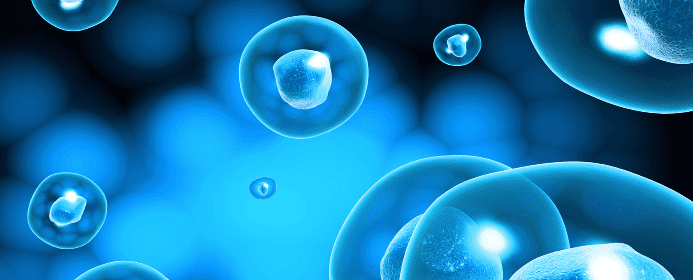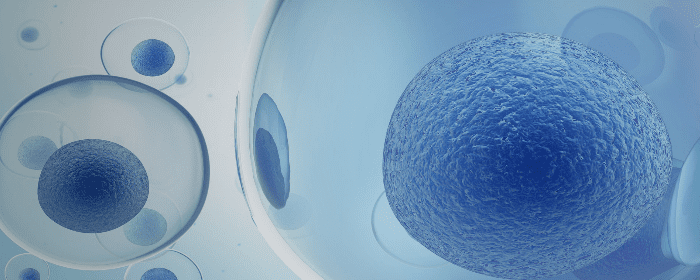
by admin | Jan 3, 2021 | Stem Cell Therapy, Mesenchymal Stem Cells, Stem Cell Research
Multiple system atrophy (MSA) is a rare, progressively degenerative neurological disorder that affects several of the central nervous system’s involuntary (autonomic) functions, including blood pressure, breathing, bladder function, and motor control.
Similar to Parkinson’s disease in both symptoms and progression, MSA has an average survival time of 7-9 years with no known treatment; the condition is generally characterized by slowed movement, rigidity of the muscles, and loss of balance.
With no effective medical treatment for MSA, current methods of treatment involve those known to reduce or manage symptoms and enhance care. However, with the rapid evolution of therapeutic treatments involving the use of stem cells, new research is exploring this application in the hopes of treating MSA and other degenerative diseases.
Stem cells and specifically adult neural, mesenchymal, and pluripotent stem cells are currently being researched in preclinical and clinical trials.
Examination of neural stem cells found in cerebral ventricles, the hippocampus, and within the striatum of the brain tissues, has revealed them to be self-renewing and have the potential to quickly differentiate. When studied in models using mice, neural stem cells were shown to mitigate into lesions of the brain, proliferate, and differentiate into three distinct types of nerve cells. Considering this, researchers believe neural stem cells to be the ideal donor cell for treating MSA. The biggest drawbacks associated with neural stem cells appear to be the difficulty associated with collecting them from the central nervous system.
Mesenchymal stem cells, or MSCs, found in bone marrow, umbilical cords, and adipose tissue are easy to obtain and have been demonstrated to be self-renewing and differentiate quickly. MSC animal models have also demonstrated improvement in Parkinson’s-associated symptoms, the ability to hinder immuno-inflammatory reactions, and the ability to improve overall cognitive ability – all without additional side effects.
Human umbilical cord blood, or hUCB-MNC, is also a known source of stem cells, and specifically mononuclear cells, which have been found to have high nerve regeneration functionality. In addition, hUCB-MNC are easy to collect, separate, and survive longer than other stem cells. When transplanted into the brain, animal studies have demonstrated hUCB-MNC’s ability to secrete nerve growth factors, repair damaged cells, and protect neurons. Other studies have shown that hUCB-MNC appears effective in treating a variety of nervous system diseases by reducing inflammation and regulating immunity within the central nervous system.
Regardless of the characteristics, benefits, and source of the various stem cells, the treatment appears to rely heavily on the method of transplantation for treating MSA. Specifically, successful transplantation relies on the stem cells’ ability to migrate to the CNS and integrate into tissues.
The lack of progress in developing successful treatment options for MSA has led to examining stem cells’ ability to self-replicate, self-renew, differentiate, and secrete neurotrophic factors as a potential treatment method for MSA and other related neurological diseases. As research evaluating the therapeutic benefits of stem cells progresses, the authors recommend continued monitoring of stem cell safety as well as the degree of survival and integration after transplantation into the human body.
Reference: 2018, October 5). Treatment of multiple system atrophy-the past, present and …. Retrieved January 12, 2021, from https://www.ncbi.nlm.nih.gov/pmc/articles/PMC6261842/

by admin | Dec 29, 2020 | Stem Cell Therapy, Osteoarthritis, Pain Management, Stem Cell Research
As researchers continue to uncover potential health and medical benefits associated with the regenerative properties of stem cells, there is growing interest in the field of stem cell medicine and specifically for use as an alternative therapeutic treatment of pain.
Of particular recent interest in this area is the differentiation ability of stem cells classified as totipotent, pluripotent, and multipotent. Stem cells that can differentiate into and form cells and build organs are known as totipotent stem cells. Pluripotent stem cells are able to differentiate into various types of cells. Multipotent stem cells can differentiate into several limited forms of cells. Of the three different types, only multipotent stem cells are found as adult cells in the body, including in organs, placenta, and bone marrow.
Recently, stem cell transplantation has been used as an alternative treatment for pain associated with severe osteoarthritis, neuropathic pain, and intractable musculoskeletal pain that does not respond to traditional or conventional medication.
Osteoarthritis
Although stem cells are thought to be a potential treatment approach for repairing and regrowing cartilage required for treating severe osteoarthritis, to date, regeneration of damaged cartilage has proven to produce limited results. One of the significant issues associated with using stem cells to regenerate cartilage is that cartilage contains no blood vessels or nerves, making cartilage regenerations very difficult once it is damaged. Making the process even more difficult, cartilage regeneration can only occur when the entire layer of cartilage and the layer of bone directly below the cartilage is damaged.
As such, therapeutic stem cell treatment possibilities for osteoarthritis include individual or combination treatment(s) of surgical intervention, tissue engineering, and intra-articulation injection of cultured stem cells; of these possible treatment options, intra-articulation injection of cultured cell therapy would be the preferred method as it is the least minimally invasive and most convenient for clinical use.
There have been mixed reviews as to the effectiveness of these treatments and, to date, there have been no reliable and convincing clinical human students with a high level of evidence conducted specifically on the efficacy in functional improvements and cartilage repair surrounding the application of intra-articular stem cell injection therapy. Although some who have had this treatment expressed improvements.
Neuropathic Pain
Stem cells have demonstrated the ability to release neurotrophic factors that enhance the growth and survival potential of neurons, secrete anti-neuroinflammatory cytokines, and provides a cellular source for replacing injured neural cells; this makes the application of stem cells a prime option for regulating and potentially even reversing intractable neuropathic pain.
Studies have confirmed that relieving neuropathic pain is possible through the administering of stem cells, both through intravenous injection and when directly administered to a specific injured site. However, while stem cells do not need to make direct contact with injured cells to produce a neuroprotective effect, stem cells applied directly to an injured site, as opposed to those intravenously injected appeared to better target and relieve neuropathic pain associated with a specific area.
In addition, while a further clinical human study is required, animal models of both diabetic neuropathic pain and spinal cord injury demonstrate that stem cell therapy, and specifically mesenchymal stem cells (MSCs), demonstrated improved blood circulation and nerve conduction velocity, reduced pain, and regeneration of the affected nerve.
Intervertebral Disc Disease
Patients diagnosed with degenerative disc disease who were treated with MSCs injected directly into the nucleus pulposus, or inner core of the vertebral disc demonstrated a reduction in pain and disability comparable to spinal fusion surgery.
Research has yet to identify an adequate, effective dosage of stem cells and further research on specific stem cell type, dosage, safety, and implantation rate is required. As research into the use of stem cell therapy in pain medicine progresses, it is important to see the development of evidence-based standardized methods of treatment.
While still in the early stage of clinical application, the use of stem cells in the treatment of pain appears to be very promising.
Reference: (2019, October 1). Stem cell therapy in pain medicine – PubMed. Retrieved December 11, 2020, from https://pubmed.ncbi.nlm.nih.gov/31569916/

by Stemedix | Dec 28, 2020 | Lupus
Lupus is a systemic autoimmune disease in which the body’s immune system attacks healthy tissue and organs. It’s characterized by widespread inflammation which can appear in different areas of the body, including the skin, joints, blood cells, kidneys, brain, heart, and lungs. Oftentimes, lupus is challenging to diagnose, as its symptoms can vary widely and mimic other conditions. Receiving a diagnosis can bring relief in some ways, as it puts a name to an array of frustrating symptoms. Yet, it also means you’ll have to adapt to living with a chronic illness. Here are some tips for learning to live with Lupus.
Learn About Lupus
Everyone experiences lupus differently, which can make learning about lupus challenging. With that being said, there are helpful resources such as The Lupus Foundation of America to help you find out more about the condition.
You may have been experiencing an array of strange and uncomfortable symptoms that come and go. During lupus flares, symptoms such as rash, swollen joints, sores or ulcers, and fever can intensify. You’ll want to start tracking conditions leading up to flares to see if they occur in a pattern and an identifiable trigger brings them on. For instance, flares often arise after emotional or physical stress, as well as exhaustion, injury, and viral illnesses.
Find the Right Doctor
Since lupus is fairly rare, most general practitioners don’t see patients with the condition very often. To ensure you have access to the right treatment, you’ll want to see a specialist. Most people with lupus visit a rheumatologist, who specializes in systemic autoimmune diseases.
Once you’ve found a reputable doctor, you’ll want to discuss wellness strategies and treatment options. Your treatment approach may evolve, so know that you don’t have to explore all options right away. You might also consider adopting lifestyle strategies to help control symptoms, such as beginning a meditation practice to limit emotional stress.
Seek Support
Online support groups are rich with resources and firsthand accounts. Within these groups, you might be able to connect with someone whose symptoms are similar to yours and discuss treatment options that worked for them. You can also discuss the emotional and mental challenges that come with living with a chronic illness and turn to people who are ready to lend an ear. Lupus Warriors on Facebook, LupusConnect, and Lupus Research Alliance are a few options to consider.
Maintain Ongoing Care
You’ll want to visit your rheumatologist regularly, even if you aren’t having frequent flare-ups. With blood work and regular conversations, the doctor may be able to help you pinpoint which treatments and lifestyle modifications are working effectively to control flares. They might also help you explore complementary and alternative treatments to manage symptoms.
Many have begun to seek regenerative medicine, also known as stem cell therapy, as an alternative option for managing symptoms. Stem cells are considered the building blocks of life since they have the ability to self-renew and differentiate into specialized cell types. Mesenchymal stem cells (MSCs) can be sourced from autologous or allogeneic tissues and act as immunomodulators that suppress the activity of T regulatory cells.
Since lupus impacts your immune system, you’ll also want to take care to minimize your risk for other illnesses. This includes staying up-to-date with vaccines and exams. If you live with lupus it will require some adjustments, most patients can live fulfilling, happy lives after their diagnosis. By learning more and finding the right care providers, you can begin taking control of your lupus and your overall health. Contact a Care Coordinator today for a free assessment!

by admin | Dec 26, 2020 | Multiple Sclerosis, Mesenchymal Stem Cells, Stem Cell Research, Stem Cell Therapy
A recent open-label, single-arm, phase 1 clinical trial designed to evaluate the safety and tolerability of repeated intrathecal (IT) administration of autologous mesenchymal stem cells (MSCs) from bone marrow in patients with progressive multiple sclerosis demonstrated findings and benefits resulting in the initiation of an FDA-approved randomized, placebo-controlled and blinded phase II large group study to demine further efficacy of this procedure.
Multiple sclerosis, or MS, is a progressive condition where the body’s immune system attacks myelin, the protective sheath covering the nerves of the central nervous system, resulting in debilitating communication problems between the brain and the rest of the body.
While the specific cause of MS has yet to be determined, the disease itself is characterized by specific areas of inflammatory CNS demyelination that either regenerates or progresses into a chronic condition with accompanying loss of neurons, neuroglial cells, and glial scarring.
Roughly 10% to 15% of MS patients experience progressive symptoms from the onset of the disease, including motor weakness, paralysis, sensory dysfunction, loss of coordination, and cognitive decline.
Although there are immunosuppressive and immunomodulatory therapies that serve to slow the progression of MS, therapeutics designed to protect, repair, or regenerate neural tissue as a way of restoring neurological function do not currently exist. Considering that, mesenchymal stem cells gathered from bone marrow have demonstrated the ability to promote tissue repair through the secretion of paracrine factors.
Study Design and Findings
The treatment phase of this phase 1 trial, conducted at Tisch MS Research Center of New York, involved select participants with progressive MS receiving three separate IT injections of autologous mesenchymal stem cell-defined neural progenitors (MSC-NPs) spaced three months apart; each participant was then assessed the day of treatment, then the day, week, and month following each administration. As part of the post-treatment assessment, participants were assessed again three and six-month after receiving the third dose.
Analyzing the results of this study, researchers found no serious adverse effects or hospitalizations associated with this IT MSC-NP treatment; this included no specific incidents of chemical or infectious meningitis.
Brain MRI scans gathered during the course of this study demonstrated no changes and specifically were characterized by the absence of new or additional T2 lesions or related progressions associated with the patient’s MS. These findings led researchers to conclude that multiple IT administrations of MSC-NP’s are safe in the short-term and well-tolerated in participants with progressive MS.
Over the course of the study, all participants were strictly monitored for changes associated with clinical status. Assessment information gathered at the three and six-month post-treatment marks demonstrated that 75% of the subjects in this study demonstrated specific neurological improvement associated with this IT MSC-NP treatment when compared to established benchmarks, including neurological improvement associate with:
- Expanded disability status scale (EDSS)
- Timed 25-ft walk (T25FW)
- MRC muscle strength scale
- Bladder function
Key findings and observations contributing to this study include previous studies of experimental autoimmune encephalomyelitis (EAE) animal models of MS led to the experimental design of this study including multiple dosing of MSC-NPs (as opposed to single dosing).
When constructing this research study, researchers also determined that the intrathecal route of administration for cell delivery was important. While previous research has demonstrated administering bone marrow MSCs intravenously has proven to suppress EAE through immune response, intravenous administration has not demonstrated to cross the blood-brain barrier in amounts sufficient to directly impact and/or benefit the CNS; the IT route of administration appears to maximize the therapeutic potential to benefit the CNS and spinal cord.
This study concluded that IT therapy with MSC-NPS is safe and well-tolerated in patients with progressive MS and demonstrated a number of neurological benefits. As a result of this phase 1 trial, an initiation of FDA-approved randomized, placebo-controlled, and blinded phase II study in a larger group study to better determine efficacy in patients with progressive MS.
Reference: (n.d.). Phase I Trial of Intrathecal Mesenchymal Stem Cell-derived …. Retrieved January 19, 2021, from https://www.sciencedirect.com/science/article/pii/S2352396418300513

by admin | Dec 17, 2020 | Bone Marrow, Mesenchymal Stem Cells, Stem Cell Research, Stem Cell Therapy
The ability for bone to naturally repair fractures and other common injuries have been well documented. However, research has consistently demonstrated that as they age, bone loses its ability to heal, repair, and fend off various bone diseases. In fact, each year, in the U.S. alone, there are over 2 million fragility-associated fractures with associated healthcare costs exceeding more than $20 billion dollars.
Currently, non-stem cell bone healing therapies including estrogen and related agonists, recombinant parathyroid hormone, supplements such as vitamin D and calcium exist, but with limitations and a number of potentially serious side effects.
Considering that the incidence of fracture and the associate rate of morbidity increase with age, current research is now examining other therapeutic options for the structural and functional restoration of bone, including the viability and of tissue engineering applications such as mesenchymal stem cells (MSCs) and bioscaffolding as potential solutions for the structural and functional restoration of bone.
Stem cells are generally used therapeutically in three distinct ways, including 1.) freshly isolated stem cells transplanted directly into tissue and undergo in vivo differentiation to become a desired cell type; 2.) the stem cell can be manipulated in vitro prior to being implanted; or 3.) circulating endogenous stem cells are recruited by cytokines to facilitate cell proliferation, migration, adhesion, and differentiation.
As researchers continue to explore using MSCs as part of therapeutic bone regeneration, it is generally accepted that MSC bone marrow density and quality decrease with age. In addition, a factor in determining the effectiveness of MSCs related to facilitating tissue repair is the ability for the stem cells to be directed to the site of injury, a process more commonly known as “homing”. A recent study using mice has demonstrated that MSCs appear to lose their homing ability rapidly while young MSCs demonstrate better homing ability, especially when compared to old MSCs. Considering this, future research must consider the age of both donor and recipient when determining the effectiveness of this strategy.
In addition to stem cells, bioscaffolds are also considered an essential component of the bone regeneration strategy, serving as the reservoir for multiple factors, the carrier for cells, the filler for the void space, and the template for bone regeneration. The ideal scaffold for bone tissue engineering has been identified as:
- Showing no local and systemic toxic effects to the host tissue
- Supporting normal cellular activity
- Allowing cell adhesion, proliferation, extracellular matrix deposition, and inducting new bone formation
- Prompting the formation of blood vessels after weeks of implantation.
Considering the above, several substrates have been identified as potential bioscaffolds to support improved regeneration of bone tissue, including decellularized extracellular matrix scaffolds, synthetic scaffolds (calcium phosphate-based bioactive ceramic scaffolds; metallic scaffolds (including metal scaffolds coated with growth factors and other bioactive factors); hybrid scaffolds combining two or more materials (metal-ceramic-poly hybrid scaffolds); natural and synthetic polymeric scaffolds; and nanomaterial-based scaffolds.
As research continues to explore the possibilities of new therapeutic approaches to bone healing provided through various tissue engineering applications, the use of MSCs and bioscaffolds continue to demonstrate potential benefits. Among the key areas requiring further study is the need to develop vascularization in engineered bone material. Bone and bone tissue has a rich vascular supply; while the recent study has demonstrated nanomaterials as having the potential to promote vascularization (without the aid of growth factors), further research and clinical trial are required.
Reference: (2018, June 22). Bone Marrow Mesenchymal Stem Cells: Aging … – NCBI – NIH. Retrieved December 18, 2020, from https://www.ncbi.nlm.nih.gov/pmc/articles/PMC6733253/






 St. Petersburg, Florida
St. Petersburg, Florida
